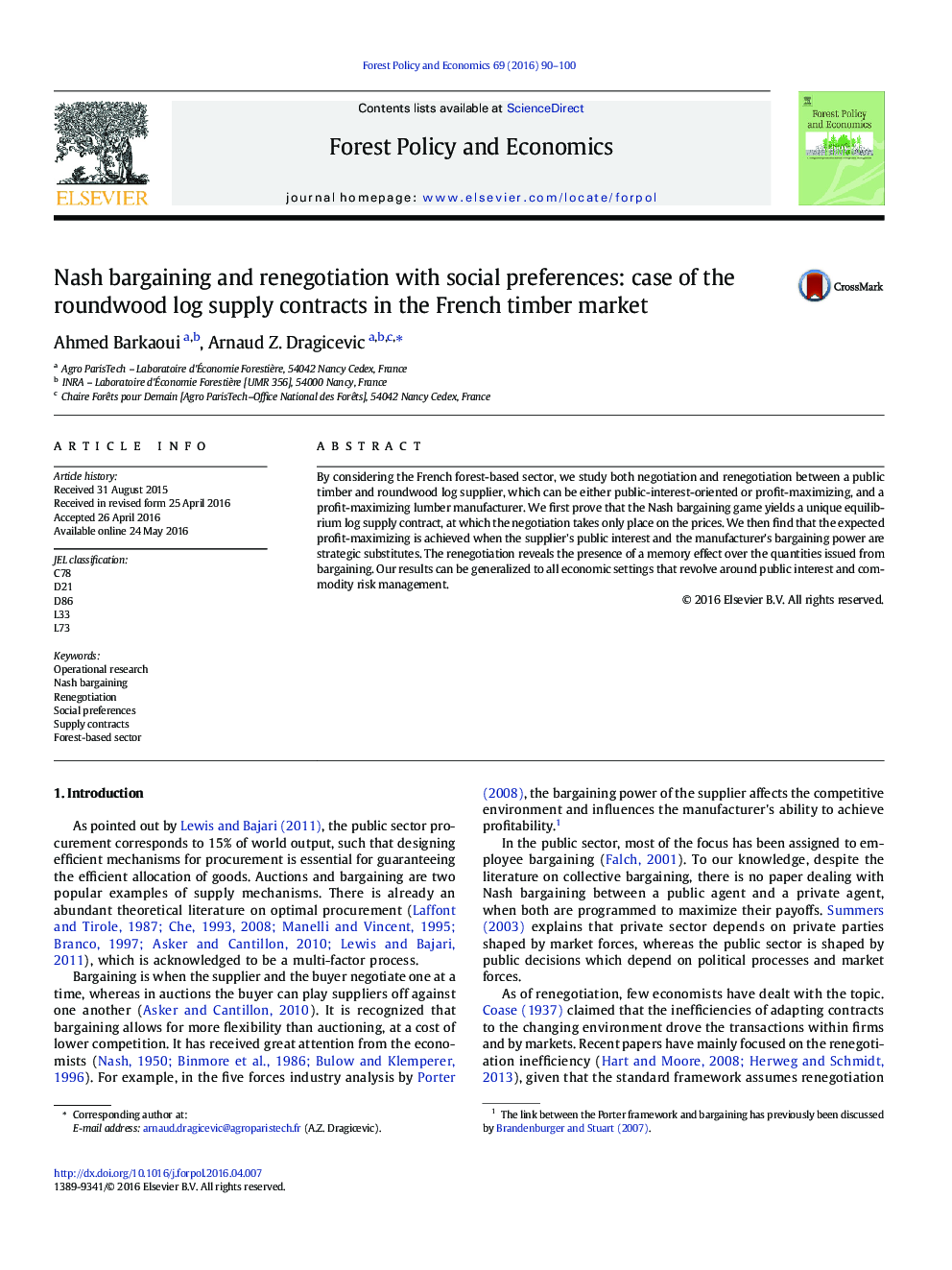| کد مقاله | کد نشریه | سال انتشار | مقاله انگلیسی | نسخه تمام متن |
|---|---|---|---|---|
| 91245 | 159773 | 2016 | 11 صفحه PDF | دانلود رایگان |
• A timber and log public supplier and a lumber manufacturer negotiate a roundwood log supply contract.
• While the lumber manufacturer is a profit-maximizing agent, the timber and log public supplier can be either public-interest-oriented or profit-maximizing.
• The unique equilibrium log supply contract only involves the price negotiation.
• The supplier's public interest and the manufacturer's bargaining power work as strategic substitutes.
• The renegotiation reveals a memory effect over the quantities issued from bargaining.
By considering the French forest-based sector, we study both negotiation and renegotiation between a public timber and roundwood log supplier, which can be either public-interest-oriented or profit-maximizing, and a profit-maximizing lumber manufacturer. We first prove that the Nash bargaining game yields a unique equilibrium log supply contract, at which the negotiation takes only place on the prices. We then find that the expected profit-maximizing is achieved when the supplier's public interest and the manufacturer's bargaining power are strategic substitutes. The renegotiation reveals the presence of a memory effect over the quantities issued from bargaining. Our results can be generalized to all economic settings that revolve around public interest and commodity risk management.
Journal: Forest Policy and Economics - Volume 69, August 2016, Pages 90–100
